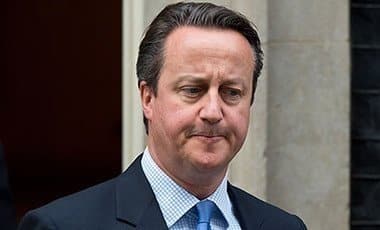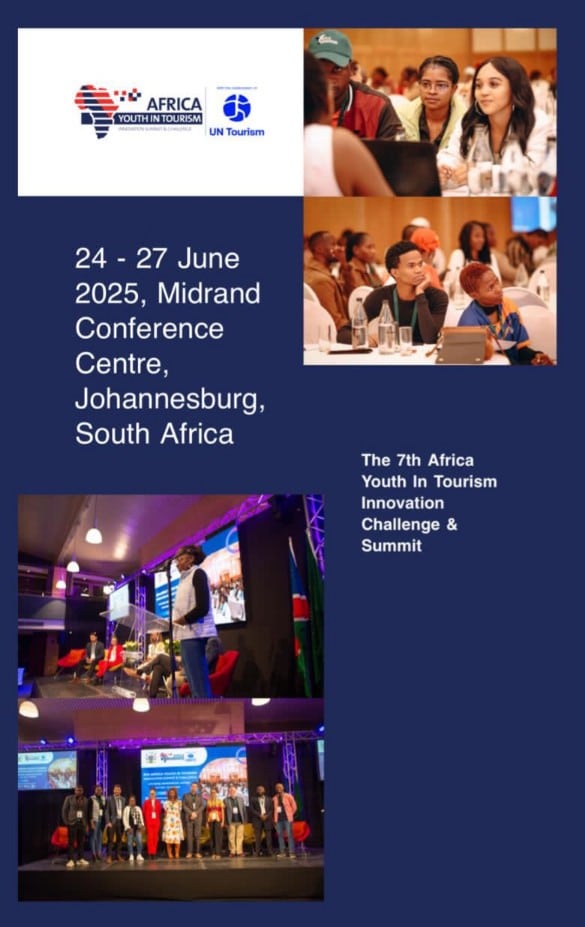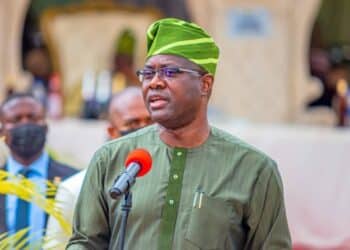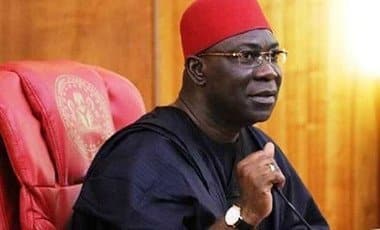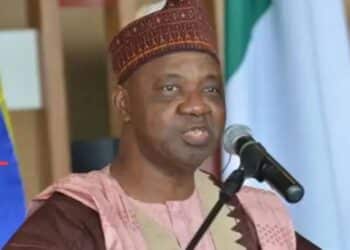THE British Prime Minister, David Cameron, was caught on camera on Tuesday telling Queen Elizabeth that leaders of some “fantastically corrupt” countries, including Nigeria and Afghanistan, were due to attend an anti-corruption summit expected to hold in London on Thursday.
Cameron specifically described Nigeria and Afghanistan as “possibly two of the most corrupt countries in the world,” according to a report by Reuters.
The prime minister will host the international anti-corruption summit, which is aimed at stepping up global action to combat corruption in all walks of life.
The report said Cameron was shown talking with the queen about the summit, in a pooled video feed made available to the ITN broadcaster.
“We had a very successful cabinet meeting this morning, talking about our anti-corruption summit,” he said when the queen approached. “We have got the Nigerians – actually, we have got some leaders of some fantastically corrupt countries coming to Britain. Nigeria and Afghanistan – possibly two of the most corrupt countries in the world.”
It was also reported that the queen did not respond to Cameron’s comment. The Archbishop of Canterbury, Justin Welby, however, said, “But this particular President (Muhammadu Buhari) is actually not corrupt.”
President Buhari and Afghan President Ashraf Ghani, who are due to attend the summit, have reportedly acknowledged corruption in their countries and pledged to clean it up.
But Cameron had come under fire for describing Nigeria as ‘fantastically corrupt.’
The Federal Government, civil rights groups and international organisations including Transparency International faulted Cameron’s claim, saying Britain too “is corrupt.”
The Presidency on Tuesday said the statement credited to Cameron was not reflective of the anti-corruption posture of the Muhammadu Buhari administration.
The Senior Special Assistant to the President on Media and Publicity, Garba Shehu, said this in his reaction made available to journalists.
Shehu said the Prime Minister must be looking at the country’s past.
He said Buhari was changing all that were wrong with Nigeria, including corruption, and that was why the President was chosen as a keynote speaker at a pre-summit in London.
The presidential spokesman said, “It (Cameron’s statement) is certainly not reflective of the good work that the President is doing. The eyes of the world are on what is happening here.
“The Prime Minister must be looking at an old snapshot of Nigeria. Things are changing with corruption and everything else. That, we believe is the reason they chose him as a keynote speaker at the pre-summit conference.”
Shehu also commended the Archbishop of Canterbury, Justin Welby, for admitting that “Buhari is not corrupt.”
He said Nigeria cherished the good relationship between the two countries and nothing would truncate the relationship.
“Thank you to the Archbishop. We very much cherish the good relationship between our two countries and nothing should stand in the way of improving those relations,” he added.
In a statement titled, ‘Transparency International responds to Cameron comments regarding Nigeria, Afghanistan and UK Summit’, the organisation said Nigeria was sincerely fighting corruption and the UK anti-corruption summit was a step in the right direction.
The organisation, however, said corruption was also affecting the UK as many of its “overseas territories” were notorious for corruption.
The British Virgin Islands which is a British overseas territory, greatly featured in the Panama Papers due to its reputation as a notorious tax haven.
The statement, which was issued by Mr. Chris Sanders, read, “There is no doubt that historically, Nigeria and Afghanistan have had very high levels of corruption, and that continues to this day. But the leaders of those countries have sent strong signals that they want things to change, and the London Anti-Corruption Summit creates an opportunity for all the countries present to sign up to a new era.
“This affects the UK as much as other countries: we should not forget that by providing a safe haven for corrupt assets, the UK and its Overseas Territories and Crown Dependencies are a big part of the world’s corruption problem.”
Reacting to Cameron’s comment, Senator Ben Murray-Bruce in his Twitter handle said, “That @DailyMailUK article on our President is rude. Irrespective of party, we must not celebrate when the Western media demeans our leaders.”
Also, the Executive Chairman of Coalition Against Corrupt Leaders, Mr. Debo Adeniran, said Cameron’s assessment of Nigeria must be informed by what had happened in the country in the past when corrupt practices were not punished.
According to him, events such as the Halliburton scandal, the Siemens bribery case, the police pension scam, the power project scam, the Security and Exchange Commission scam and others which went unpunished, coupled with compromised judgments coming from the Nigerian courts had not helped the perception of Nigeria’s corruption rating.
Adeniran said, “I am sure that it is not recent assessment that informed Cameron’s statement; it is a cumulative assessment of what has been happening since 1999 because (former President Olusegun) Obasanjo only started a process which he didn’t want to succeed. The ICPC wasn’t given the necessary bite, likewise the EFCC.”
Also, the Chairman of the Civil Society Network Against Corruption, Lanre Suraj, said Cameron assessment must be based on Nigeria’s recent past. He, however, questioned Cameron’s moral justification to call Nigeria a fantastically corrupt country when in fact monies stolen from Nigeria were hidden most times in the UK.
Suraj said, “I believe it is informed by the recent revelations about the past regime. But if Nigeria is a fantastically corrupt nations, we can also say that the UK system is also fantastically corrupt because the monies stolen from Nigeria are being hidden in the UK where there is order of silence and conspiracy. There is no doubt that the money stolen from Nigeria is actually kept in the UK system, it is a shame. But I believe, Cameron is basically talking about our past.”

